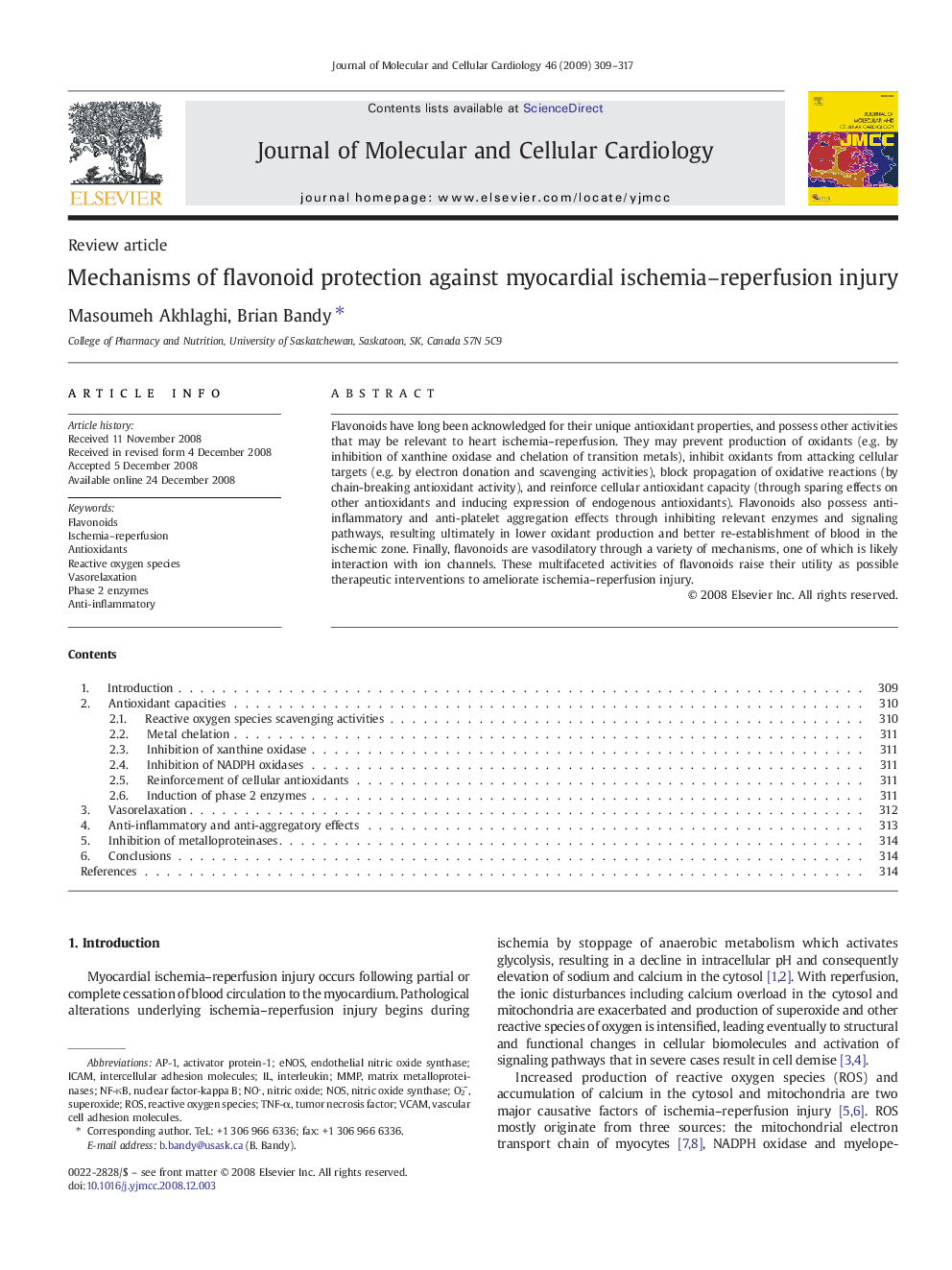| Article ID | Journal | Published Year | Pages | File Type |
|---|---|---|---|---|
| 2191423 | Journal of Molecular and Cellular Cardiology | 2009 | 9 Pages |
Flavonoids have long been acknowledged for their unique antioxidant properties, and possess other activities that may be relevant to heart ischemia–reperfusion. They may prevent production of oxidants (e.g. by inhibition of xanthine oxidase and chelation of transition metals), inhibit oxidants from attacking cellular targets (e.g. by electron donation and scavenging activities), block propagation of oxidative reactions (by chain-breaking antioxidant activity), and reinforce cellular antioxidant capacity (through sparing effects on other antioxidants and inducing expression of endogenous antioxidants). Flavonoids also possess anti-inflammatory and anti-platelet aggregation effects through inhibiting relevant enzymes and signaling pathways, resulting ultimately in lower oxidant production and better re-establishment of blood in the ischemic zone. Finally, flavonoids are vasodilatory through a variety of mechanisms, one of which is likely interaction with ion channels. These multifaceted activities of flavonoids raise their utility as possible therapeutic interventions to ameliorate ischemia–reperfusion injury.
